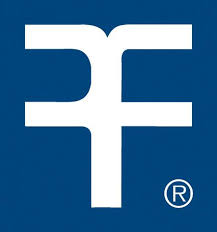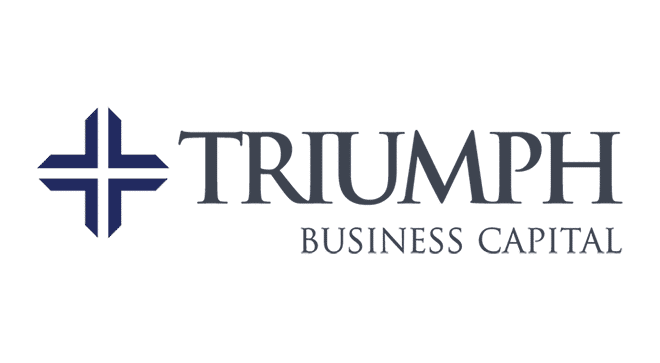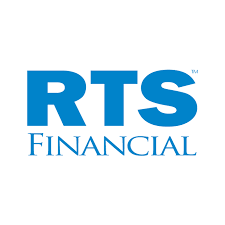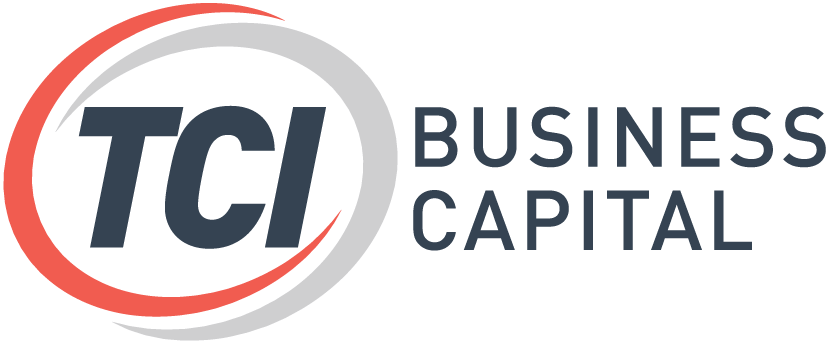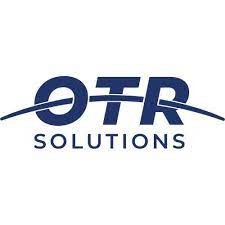What is Invoice Factoring?
Invoice factoring is a business financing method where a company sells its accounts receivable invoices to a third-party factoring company or factor. The factor purchases your invoices at a discounted rate, and you receive cash advances upfront. The factor then owns the invoice and collects it from your customer. It’s a form of accounts receivable financing. Many factoring companies work with businesses of all sizes, from startups to Fortune 500 companies.
Factoring can provide immediate cash to pay employees and manage operational costs. Many industries, such as trucking, healthcare, and manufacturing, utilize factoring services. Businesses use factoring to accelerate payment schedules when clients are slow to pay, helping to bridge the gap between providing a service and receiving payment. The amount a business factors can depend on its specific needs and customer payment timelines.
Unlike a traditional loan or line of credit, where approval is based on your business’s creditworthiness and repayment is required regardless of customer payment, factoring relies on the value of your unpaid invoices and shifts some or all of the collection risk to the factoring company. It can help small business owners access funding when they have slow-paying customers.
Invoice Factoring Example
Here is an instance of how invoice factoring works: Let’s say your business has a factoring agreement at the discount rate of 2%. You want to sell or factor outstanding invoices worth $10,000. After applying a 2% discount rate, the factor purchases the invoice for $9,800, charging a percentage of the invoice as a fee.
However, you won’t receive the total of $9,800 at once. Most factoring agreements stipulate that the factor will issue funds at the advance rate upfront. Advance rates range from 75% to 100%, but for our example, we’ll assume the advance rate is 90%.
Therefore, the actual amount you receive upfront is 90% of $9,800, which equals $8,820. The remaining $980 becomes the reserve amount. Once your customer pays the invoice, the factor releases the reserve amount to you..
Discount rates can change if your customers take longer than expected to pay. Let’s say the 2% rate is if your customer pays within 30 days. If the customer takes longer than 30 days to pay, the rate will increase each month the invoice remains unpaid.
What is a Factoring Company?
A factoring company is a financing institution that purchases invoices at a discounted rate in exchange for providing upfront cash. The factoring company then becomes responsible for collecting the invoice amount. The business does not assume the debt or credit risk of its customers; instead, this responsibility is shifted to the factoring company. Many factoring companies offer same-day or next-day funding for businesses in need of cash.
Many factoring companies focus on specific industries or business types, tailoring their services to meet the unique needs of those clients. A factoring company specializes in invoice management.
In some ways, the factoring company acts as a business’s back-office accounts receivable. Let’s examine some of the key differences between various invoice factoring companies.
Fees
The first thing to consider is the cost. Invoice factoring will always be an expensive way to secure financing, but some companies are far more costly than others. Factoring fees can vary depending on the age of the invoice, with older invoices often incurring higher charges. It is essential to compare the fees charged by different factoring providers to ensure you are getting the best terms. When selecting a factoring company, prioritize those offering the lowest fees to maximize your business’s profitability.
Be cautious of additional fees that may not be disclosed upfront, such as monthly minimum requirements or renewal charges, which can significantly increase your overall costs. You want to ensure that you can afford the fees and that the cost of financing is worthwhile for your business. The factoring company purchases invoices and issues a cash advance. Factoring companies typically charge fees ranging from 1% to 5% of the total invoice amount.
Recourse vs. Non-Recourse
In recourse factoring, the business is responsible for paying the factoring company if customers do not pay their invoices. Non-recourse factoring means the factoring company assumes most of the credit risk associated with collecting payment.
Notification Factoring
Some factoring companies will notify your customers when they purchase the invoices, and others will not. If you don’t want your customers alerted when you sell their invoices, look for a company that doesn’t notify them.
Additional Services
In addition to factoring services, some invoice factoring companies stand out because they offer enhanced services to help you process invoices. Some additional services to consider when looking for a factoring company include:
-
Easy invoice uploads.
-
Integration with your accounting software.
-
Credit checks on your customers, with some factoring companies also providing credit reports on your customers to help you assess their creditworthiness.
-
Credit services include managing accounts receivable and evaluating customer credit risk.
-
A/R processing tools.
-
Online portals or mobile apps for convenient processing.
What are the best Invoice Factoring Companies?
We’ve compiled a list of the best invoice factoring companies to consider for your business. When choosing a factoring partner, it’s essential to consider the company’s experience in the industry, as those with a long track record often provide more reliable and efficient service. Some factoring companies also specialize in specific industries, offering tailored solutions that cater to your business needs.
Factoring can be mutually beneficial for both businesses and factoring companies, fostering relationships that benefit both parties. Additionally, by providing access to working capital, factoring can help you support your team and invest in growth initiatives.
altLINE
-
Advance Rate: 85%-95%
-
Discount rate: 0.5% – 5%
-
Funding time: 1-3 business days, but it varies
altLINE is the invoice factoring wing of The Southern Bank Company, based in Alabama. Since the community bank funds altLINE’s invoice factoring, it can maintain competitive rates.
Getting set up with altLINE’s factoring services is straightforward—after applying, you’ll go through a simple onboarding process to prepare your account for funding.
The factoring company’s advance rates range from 85% to 90%, and their discount rates start as low as 0.5%. The discount rate caps out at 5% if customers take longer than 30 days to pay their invoices.
altLINE does not offer invoice factoring to trucking or freight companies, which is uncommon in the invoice factoring industry. It does provide excellent rates for all other sectors, though.
Applying to altLINE:
You can complete the questionnaire on altLINE’s website to get a quote. A specialist from the company will call you back to discuss your options.
altLINE does not require a minimum credit score or a specified time in business. It does require a minimum monthly revenue of $15,000.
Riviera Finance
-
Advance Rate: up to 95%
-
Discount rate: starts at 2%
-
Funding time: 24 hours
Riviera Finance offers non-recourse factoring, and it is one of the longest-running factoring companies available. The company’s unique credit guarantee distinguishes it from other factoring companies.
Riviera Finance serves a wide range of industries, including wholesale businesses, helping them manage their cash flow and support large-volume transactions. The company’s credit management service guarantees credit on all invoices, so Riviera Finance assumes the risk as the credit manager. Companies factoring invoices through Riviera gain peace of mind knowing they are not responsible if a customer fails to pay their invoice.
Riviera Finance offers a convenient online portal with 24/7 access to your invoice information. The company uses integrated tools to provide support as an accounts receivable partner.
It’s also a good option for businesses that need funds quickly. Once approved, the company provides funding for invoices within 24 hours. Advance rates go up to 95%.
Applying to Riviera Finance:
You can apply in person at one of the company’s 25 locations, complete an online application, or call them directly.
Riviera does not have minimum requirements for credit score, time in business, or revenue. Credit decisions are based on your customer’s creditworthiness.
eCapital
-
Advance Rate: up to 100%
-
Discount rate: Starts at 1%
-
Funding time: Same day to 48 hours
eCapital Commercial Finance offers a range of business financing products, including invoice factoring. The company is ideal for startups and younger businesses, as it doesn’t have minimum requirements that would typically exclude these businesses.
The factoring company offers advance rates of up to 100%, one of the best in the industry. Discount rates range from 1% to 5%, and they currently offer a 90-day trial period.
eCapital offers both recourse and non-recourse invoice factoring. The company offers some of the fastest funding times in the industry, with same-day funding available in select cases.
Invoice factoring customers gain access to eCapital’s database of over 40,000 companies and can run unlimited free credit checks. The tool allows small business owners to run credit checks on their customers before factoring their invoices, and free account setup is also available.
Applying to eCapital:
Complete an online questionnaire and then speak to a company representative. It’s possible to get approved and funded the same day you apply.
eCapital does not have minimum requirements. Any business with a verifiable invoice can apply.
Triumph Business Capital
-
Advance Rate: Up to 100%
-
Discount rate: 1%-4%
-
Funding time: 24-48 hours.
Triumph Business Capital specializes in invoice factoring for trucking and freight companies. The trucking industry utilizes invoice factoring more than any other industry, and Triumph handles many factoring transactions for these businesses.
Triumph offers additional incentives like a fuel card program, insurance, and equipment financing. The company also offers invoice factoring to staffing companies, as well as to businesses in the oil and gas, manufacturing, telecommunications, and service sectors.
Triumph’s discount rates range from 1% to 4%, and it offers a 100% advance rate with no reserves. It offers both recourse and non-recourse financing.
Applying to Triumph:
In some cases, it’s possible to receive same-day funding. Complete the online application or call Triumph to apply.
RTS Financial
-
Advance Rate: Up to 97% of invoice value paid upfront.
-
Discount rate: Undisclosed
-
Funding time: Undisclosed
RTS Financial offers invoice factoring services for various industries, with special incentives tailored to freight businesses. In addition to helping solve cash flow issues, RTS provides a desktop and mobile app to assist trucking businesses in managing their day-to-day operations.
The company offers a fuel card program for trucking and freight businesses. It can provide up to 97% of the invoice’s value and provides quick funding with same-day funds in some cases.
The main drawback of RTS is that it doesn’t provide rates upfront. You need to apply to determine the applicable fees. When applying to RTS, there is no stated minimum number of invoices required to qualify for their services, making it accessible for businesses of various sizes.
RTS does not charge ACH transfer fees or invoice processing fees.
Applying to RTS Financial:
Like most factoring companies, the process starts with completing an online application and speaking to a representative. After providing basic information about your business and needs, you will talk with someone at the company again to finalize your application.
There are no minimum requirements for credit score, time in business, or revenue.
TCI Business Capital
-
Advance Rate: 70%, 80%, or 90%
-
Discount rate: N/A – varies based on when customers pay
-
Funding time: 24 hours
TCI Business Capital provides invoice factoring on monthly contracts. You can lower your rate by increasing the volume of invoices you process. If your customers require longer payment terms, such as 60-90 days, this can impact your cash flow management and may result in higher factoring costs due to the extended time before invoices are paid.
The company mainly provides financing to business-to-business (B2B) companies in the following sectors:
-
Environmental services
-
Heavy construction
-
Oilfield services
-
Manufacturing
-
Renewable energy
-
Staffing
-
Telecommunications
-
Trucking and freight
-
Utility and pipeline contractors
TCI offers a fuel card program for trucking businesses. It also provides some personal touches, including the opportunity to speak with a representative to find the best package for your needs.
The company’s fees are volume-based, like many invoice factoring companies. The website doesn’t disclose the exact fee ranges. You must apply to get a quote:
Applying to TCI Business Capital:
Complete the online questionnaire to get a quote. A representative will contact you to discuss your financing needs and the best product for you.
There are no minimum requirements for your credit score or time in business, but the revenue requirement is higher than most. Your business needs $50,000 in monthly revenue to qualify.
OTR Solutions
-
Advance Rate: 96%
-
Discount rate: 1% – 4%
-
Funding time: 24 hours, with instant funding possible.
OTR Solutions (formerly OTR Capital) is a leading invoice factoring company serving the transportation industry. Some rank as the best invoice factoring company among freight factoring companies. The company offers additional services, including equipment financing, insurance, fuel cards, and tax assistance.
Complementing their invoice factoring service, OTR offers a convenient online portal to check your customers’ credit. Simply enter the MC number to find the results you need.
Going along with the online portal, OTR also offers a mobile app. Customers can use the app for uploads, processing data, and adding notes.
OTR does not have monthly minimums, credit restrictions, or volume limits. It offers both recourse and non-recourse factoring.
If you are concerned about trustworthiness or hidden fees, OTR offers a consistent flat factoring rate and doesn’t have hidden charges or fees. OTR offers customized factoring programs to meet a business’s unique needs.
Applying to OTR Capital:
You can complete the online form to have a representative contact you or apply directly with your MC or USDOT number.
How to apply for Invoice Factoring:
You can apply for invoice factoring through United Capital Source. Follow these instructions to apply for invoice factoring.
Step 1: Make sure your customer is reliable.
Factoring invoices only works when your customers pay their invoices on time and in full. Ensure you’re sure your customers will pay before contacting a factoring company.
Step 2: Gather your documentation.
When you apply, the factoring company needs to review the following documents:
-
Driver’s license.
-
Voided business check.
-
Bank statements from the previous three months.
-
Business tax return.
-
Accounts receivable aging report, Accounts payable report, and debt schedule.
Step 3: Apply.
You can complete our one-page application or call us to apply. Either way, you’ll need to provide the information above and the invoice amount you want to sell.
Step 4: Speak to a representative.
Once you apply, one of our representatives will contact you to discuss the factoring fee, factoring rate, and terms associated with the sale. You’ll get an upfront breakdown of all costs, so you don’t have to worry about hidden fees.
Step 5: Receive approval.
The entire process takes about two weeks to finalize. Funds will appear in your bank account 1-2 days after completing the application.
What are the advantages of Invoice Factoring?
There are several advantages to factoring receivables. It’s one of the most accessible forms of business financing to qualify for, as credit decisions are based on your customers’ credit more than your own.
Receivables factoring isn’t a loan, so you don’t incur any debt. It’s a viable alternative for companies in urgent need of funding that don’t want to add to their debt.
When you factor invoices, the factoring company assumes responsibility for collecting payments from your customers, saving you time and resources. And don’t worry – factoring companies won’t relentlessly pursue your customers, either. When you work with a company like UCS, your customers won’t even know you sold the invoice.
In addition to quick cash access, there are additional benefits such as back-office support for collections and scalable solutions that can help your business grow.
The most significant benefit is turning accounts receivable into working capital. Unpaid invoices are like unsold inventory – the longer they go without converting into cash for your business, the less profitable they become.
What are the disadvantages of Invoice Factoring?
The biggest drawback is that accounts receivable factoring is expensive. Like most near-term and short-term financing options, invoice factoring typically carries higher rates and fees compared to traditional long-term business financing.
One problem that factoring aims to solve is limited cash flow caused by slow-paying clients, but the cost of this solution can be significant.
Due to the complex nature of receivables factoring, it’s also difficult to compare costs to a loan or other forms of financing. Accounting for factored receivables, using the techniques described above, helps understand the total costs involved.
While you don’t need good credit for approval, your customers do. If your customers are unreliable and already paying late, you are unlikely to get approved. Receivables factoring is most effective for established businesses with multiple partners.
Factoring accounts receivable is not the only way to avoid late payments and convert invoices into cash. Sometimes, all you need to do is improve billing. You can try automating your invoices, offering customers more payment options, and enhancing your collections team’s efforts.
We prepared a pros and cons list for a quick summary.
Pros & Cons:
Pros:
-
Turn unpaid invoices into cash.
-
Easier to qualify for than other business financing options.
-
You can use the funds for various business purposes.
-
Invoices and receivables are treated as collateral.
Cons:
-
Higher rates & fees than traditional loans.
-
Fees are based on the time it takes customers to pay their invoices.
Frequently Asked Questions
Here are some of the most common questions about invoice factoring.
What’s the difference between Invoice Factoring & Invoice Financing?
While the two terms sound similar, there are significant differences between them. As discussed, invoice factoring is when a business sells unpaid invoices for immediate cash. In this process, a factoring agent acts as the intermediary, purchasing your accounts receivable and providing you with a cash advance.
Invoice financing, also known as accounts receivable financing, is a type of financing where you receive an upfront amount based on the value of the invoice. You then repay the loan as your customers pay their invoices.
In invoice factoring, the factoring company owns the invoices and is responsible for collecting them from your customers. With invoice financing, you still own the invoices, and you collect from your customers.
Invoice factoring employs a factoring fee, also referred to as a discount rate, whereas invoice financing typically utilizes a traditional interest rate; the costs of both forms of business financing tend to be high.
Is Invoice Factoring right for my business?
Invoice factoring is best for businesses in urgent need of funding that might not qualify for traditional business lending. More established businesses with good credit can likely find more affordable ways to finance their company.
Since invoice factoring is considered near-term financing, it’s best for customers who need to meet an immediate cash flow shortage. Factoring can help reduce financial stress by providing quick access to funds, allowing businesses to cover expenses without waiting for customer payments. Likewise, it’s best for companies whose customers pay on time.
Factoring fees are often based on how long customers take to pay and whether they pay in one lump sum. You can expect higher fees if your business routinely waits longer than 90 days for payment. However, you typically get a lower rate if most customers pay within 30 days.
Small business owners may consider invoice factoring if their company has a large number of unpaid invoices and is experiencing cash flow shortages. Factoring can help maintain business operations and continuity during periods of cash flow shortages by ensuring you have the necessary funds to keep running smoothly. For example, if your business has thousands of dollars in accounts receivable, but payroll is due soon, receivables factoring might be a good option.
Accounts receivable factoring is also a potential option for newer businesses. Since the factoring company ultimately receives its money from your customers, not you, your business doesn’t need to meet rigorous credit approval requirements. Your customers’ credit, however, does come into play.
You should consider invoice factoring if the following apply to your business:
-
Has verified invoices in accounts receivable.
-
Needs immediate access to working capital.
-
Can’t get approved for a traditional loan, or doesn’t want to incur debt.
-
Has customers with a reliable credit history.
-
The cost of the discount rate is worth it for the immediate capital.
What is Recourse vs. Non-Recourse Factoring?
In recourse factoring, you are responsible if your customers don’t pay their invoices. In non-recourse factoring, the factoring company assumes the financial risk if a customer fails to pay.
Non-recourse factoring rates are higher than those for recourse factoring, but the added liability protection may be worth the extra cost. Some companies only offer non-recourse factoring in limited situations, such as when a customer fails to pay due to bankruptcy or other financial difficulties.
Best Factoring Companies – Final Thoughts
Each factoring company we listed today has its advantages and drawbacks. Finding the right company depends on your specific needs.
Most transportation companies can find companies that offer industry-specific benefits, like a fuel discount card. Several offer integrated services, including insurance, equipment financing, and convenient tools to manage your business on the go.
Business-to-consumer (B2C) companies are more limited in their options, as most invoice factoring companies prefer to work with business-to-business (B2B) companies. However, some companies could work for B2C if you have a verifiable invoicing system.
The three most important things when deciding on a factoring company are how much you will get (advance rate) when you get it (funding time), and how much it will cost you (discount rate). After that, you can also review the additional services the company offers to find the best one for your needs.
If you’re interested in accounts receivable factoring through United Capital Source, please get in touch with us or visit our dedicated accounts receivable factoring resource page.





